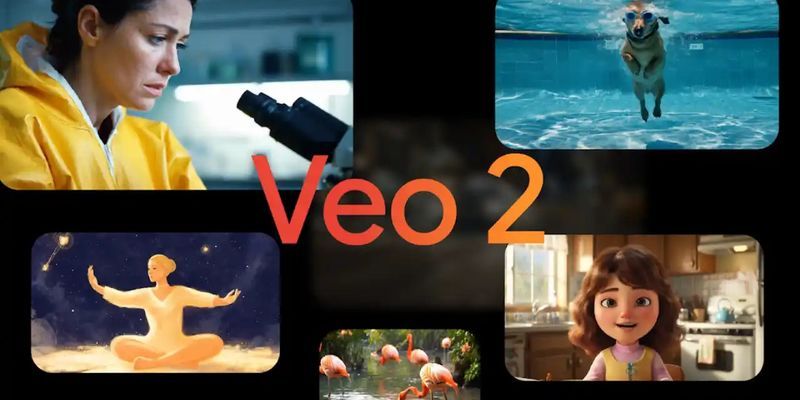In the bustling world of generative AI, Google has unveiled its next-gen AI video creation tool, Veo 2, aiming to dethrone OpenAI’s Sora. Packed with cutting-edge features and a robust design, Veo 2 promises to redefine the AI video generation landscape and empower creators to push their storytelling boundaries.
What’s New in Veo 2?
Building on its predecessor, Veo 2 introduces groundbreaking advancements that cater to professional and casual creators alike. Key upgrades include:
- Hyper-Realistic Video Generation: Veo 2 leverages advanced neural networks to understand intricate human movements, environmental dynamics, and lighting conditions, delivering ultra-realistic videos indistinguishable from real-life footage.
- 4K Resolution and Beyond: With support for 4K and HDR video output, Veo 2 ensures that creators can meet the demands of modern content platforms where visual fidelity is paramount.
- Longer and Smarter Outputs: Unlike its predecessor, Veo 2 can now generate longer videos, spanning several minutes. This opens up new avenues for creating short films, tutorials, and branded content.
- Intuitive Interface: Google has overhauled the user experience, ensuring seamless navigation for beginners and professionals. The addition of pre-set templates and customisation options further enhances accessibility.
- AI-Powered Storyboarding: With Veo 2, creators can input a storyline, and the tool will generate a visually engaging narrative, complete with transitions, effects, and scene recommendations.
How Veo 2 Stands Against OpenAI’s Sora
OpenAI’s Sora, launched earlier this year, brought fresh capabilities to AI-driven video creation. However, Veo 2 sets itself apart with its enhanced realism, scalability, and broader usability.
When comparing Veo 2 and OpenAI’s Sora, several distinctions highlight the competitive edge of Google’s new tool. Veo 2 stands out with its ability to generate longer videos, spanning several minutes, while Sora is limited to shorter sequences. The resolution is another defining factor; Veo 2 supports 4K HDR, delivering high-definition visuals suited for modern content standards, whereas Sora offers standard HD quality. In terms of realism, Veo 2 takes the lead with advanced human and environmental rendering that mirrors real life, surpassing Sora’s less refined but still high-quality outputs. Additionally, Veo 2 features an intuitive interface designed with pre-set templates for accessibility, making it user-friendly for beginners and professionals alike. By contrast, Sora offers customisable options but requires a steeper learning curve for new users. Both tools implement content moderation through watermarks and usage guidelines, but Veo 2 strikes a balance with flexibility, while Sora enforces stricter restrictions on human-like video outputs. These differences position Veo 2 as the go-to choice for creators seeking high-quality, longer-form video content with ease of use.
While Sora excels in faster outputs and creative tools like storyboard integrations, Veo 2’s focus on realism and lengthier content positions it as a preferred choice for creators aiming for cinematic-quality productions.
What This Means for Creators
The battle between Veo 2 and Sora highlights the rapid evolution of AI tools for content creation. Veo 2 empowers creators to produce polished, high-quality videos that resonate across social media, marketing campaigns, and entertainment platforms. Whether you’re a brand seeking to enhance your storytelling or an individual experimenting with AI-powered creativity, Veo 2’s expansive capabilities cater to diverse needs.
The Road Ahead
Google’s launch of Veo 2 underscores its commitment to staying ahead in the generative AI race. By addressing creators’ demand for longer, more realistic content, Veo 2 sets a new benchmark in AI video generation. However, with OpenAI continuing to innovate with Sora, the competition is bound to accelerate advancements in this domain.










